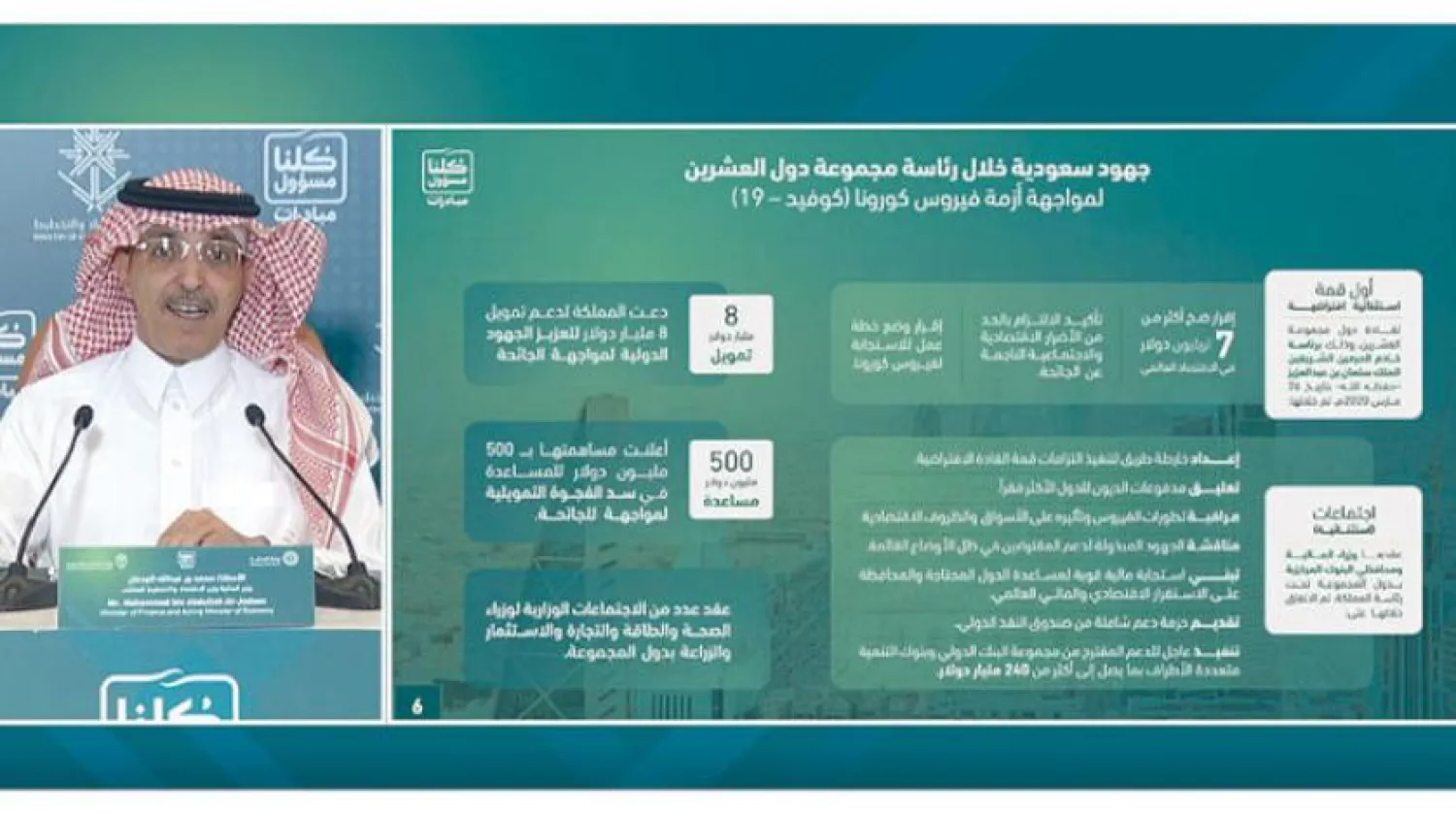Saudi Arabia on Thursday rolled out a six-point post-coronavirus economic plan that promises reopening the economy and the gradual return of business sectors to work. The plan, however, did not set a date.
The virus crisis is expected to continue effecting the health sector and the rest of the economy until the end of 2020.
Finance Minister Mohammed al-Jadaan confirmed that the committee tasked with addressing challenges imposed by the virus crisis is convening daily to review initiatives, decisions and procedures.
He added that work teams overseen by the committee “continue to work around the clock to monitor the situation.”
In a press conference, Jadaan revealed the economic plan in which the health sector is a priority. The plan is set to work gradually to ensure caution and continued monitoring whereby the return of economic and commercial activity will be partial.
One of the plan’s approaches to reopen the economy is to prioritize vital activity which ensures the provision of basic services and commodities. This is provided that returning firms take all preventative measures.
“We expect the crisis to continue for a period of months, perhaps to the end of this year in the health aspect,” Jadaan said, adding that the gradual reopening of the economy will remain subject to decisions of lockdown if the need arises.
The Finance Minister revealed that the government will announce additional measures to support the economy before the end of June.
The government has also announced redistribution of public expenditure to ensure that spending is directed to certain sectors, such as the healthcare. Meanwhile, public spending on certain activities such as travel, and entertainment will be postponed in light of the current conditions.
The Kingdom, however, is committed to providing all resources to protect its citizens and support the healthcare sector, Jadaan said, expecting gross domestic product (GDP) to be impacted this year.
The Kingdom’s reserves helped it face the coronavirus crisis from a position of strength and provide the necessary support for the healthcare sector.










